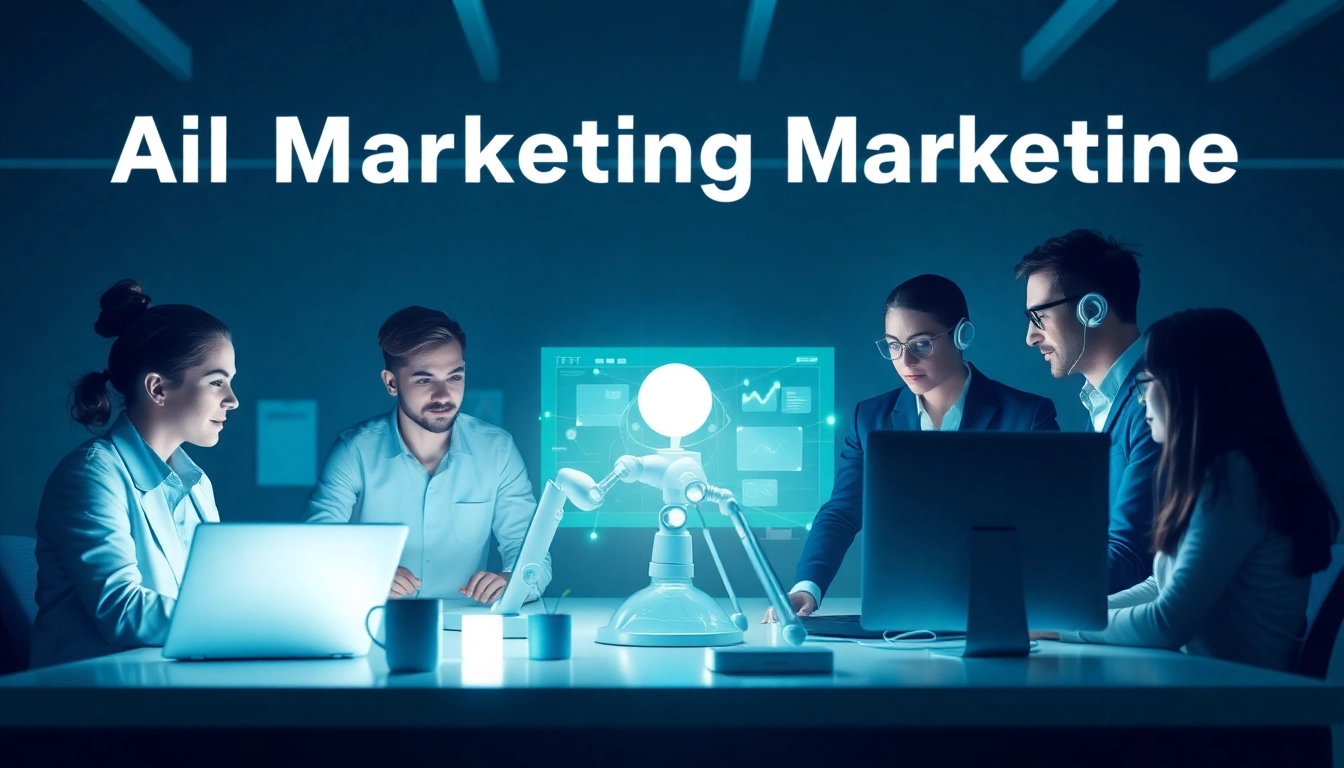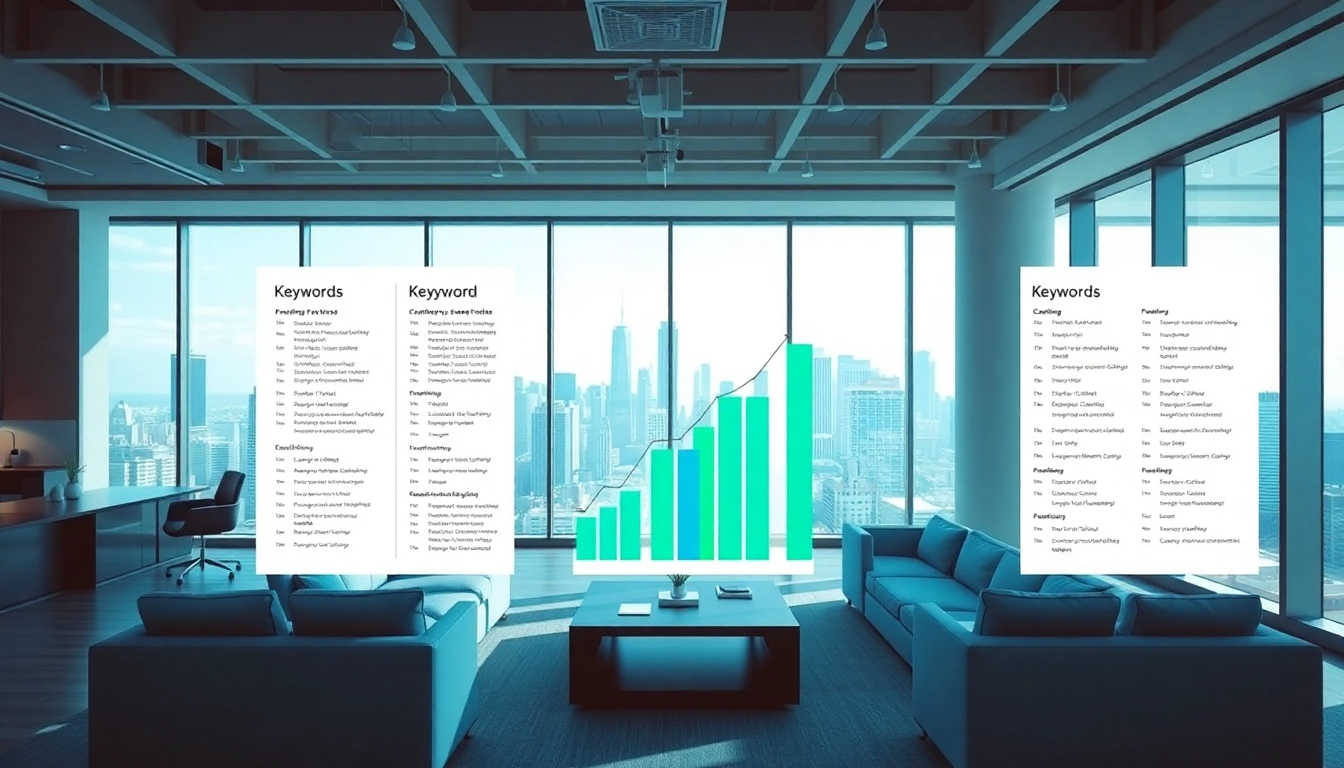
Understanding AI Marketing Agents
What Are AI Marketing Agents?
AI marketing agents are innovative software tools designed to automate specific marketing tasks by utilizing artificial intelligence. These agents help marketers streamline various processes, allowing them to focus more on strategic decision-making and creative output. By employing machine learning, predictive algorithms, and data analytics, AI marketing agents can adapt to changing market conditions and consumer behaviors, greatly enhancing operational efficiency.
Unlike traditional marketing practices that require extensive human intervention for every task, AI marketing agents operate with a degree of autonomy. While human oversight is still necessary, these systems can perform tasks such as customer segmentation, campaign optimization, and personalized content delivery with greater speed and accuracy. This shift not only enhances productivity but also enables marketers to leverage insights derived from real-time data analysis and customer interactions.
The Role of AI in Marketing Automation
Marketing automation, enhanced by AI, serves as a vital mechanism for organizations looking to optimize their marketing strategies. AI algorithms can analyze vast datasets quickly, identifying trends and patterns that humans might overlook. This capability enables marketers to automate repetitive tasks like email marketing, social media posting, and customer engagement processes.
AI tools can also personalize marketing efforts effectively. For instance, they can track customer interactions with a brand and tailor messages accordingly, increasing the likelihood of conversion. Companies that have implemented AI-driven marketing automation report significant improvements in lead generation and customer retention rates, underscoring AI’s transformative impact on marketing strategies.
Benefits of Using AI Marketing Agents
The implementation of AI marketing agents provides several key benefits to businesses:
- Increased Efficiency: By automating routine tasks, AI agents reduce the time marketers spend on mundane activities, allowing them to concentrate on strategic initiatives.
- Enhanced Personalization: AI agents can analyze customer data to create personalized marketing strategies, leading to higher engagement and conversion rates.
- Cost Reduction: Automating processes allows businesses to optimize resource allocation and reduce operational costs associated with manual marketing efforts.
- Data-Driven Insights: AI agents can provide actionable insights derived from data analytics, helping businesses make informed decisions and adapt strategies seamlessly.
- Scalability: AI systems can handle large volumes of marketing tasks, making it easier for businesses to scale their marketing efforts without a corresponding increase in staff.
Popular AI Marketing Agents on the Market
Top Tools for Marketers
As the landscape of AI marketing agents continues to evolve, several tools have emerged as frontrunners in the industry. Tools like HubSpot, Salesforce Einstein, and Marketo leverage artificial intelligence to provide marketers with comprehensive solutions for content management, customer relationship management (CRM), and campaign optimization. Some notable AI platforms include:
- HubSpot: A popular inbound marketing software that offers an AI-driven CRM to help businesses connect with customers efficiently.
- Salesforce Einstein: Integrates AI capabilities into Salesforce’s CRM, providing predictive analytics and personalized marketing solutions.
- Marketo: A marketing automation software that utilizes AI and machine learning to personalize campaigns and enhance customer experiences.
- Hootsuite Insights: Harnesses AI to analyze social media interactions and gauge audience sentiment, thus informing marketing strategies.
Innovative Features to Look For
When assessing AI marketing agents, it’s critical to consider features that enhance their effectiveness. Key features to look for include:
- Machine Learning: The ability to learn from data inputs and improve over time is vital for making predictive analyses more accurate.
- Predictive Analytics: Features that forecast customer behavior and preferences can help businesses tailor their strategies effectively.
- Integration Capabilities: AI tools should seamlessly integrate with existing marketing platforms and technologies, ensuring smooth workflows.
- Scalability: The tool should support growing data needs as the business expands.
- User-Friendly Interface: An intuitive interface helps marketers utilize the functionalities of AI tools effectively without extensive training.
Comparing Traditional vs. AI Agents
While traditional marketing agents rely heavily on human interpretation and labor, AI marketing agents employ data-driven algorithms to enhance efficiency and accuracy. Traditional methods often involve manual data collection, segmentation, and analysis, which can be time-consuming and prone to error. In contrast, AI agents automate these processes, delivering faster and more reliable results.
For example, traditional email campaigning requires marketers to segment audiences manually, whereas AI tools can automatically segment audiences based on behavioral data. This not only reduces time spent on manual tasks but also increases the likelihood of reaching the right audience with the right message. Additionally, AI marketing agents continually analyze performance metrics, enabling marketers to pivot strategies swiftly in response to changing market conditions.
Implementation Strategies for AI Marketing Agents
Identifying Your Marketing Needs
The first step in implementing AI marketing agents is to clearly identify your marketing needs. This involves examining current processes, challenges, and opportunities for improvement. Conducting a SWOT analysis can help to pinpoint weaknesses that AI can address. Additionally, understanding customer behavior and preferences provides an essential context for selecting the right AI tools.
To successfully identify your needs, consider engaging cross-functional teams to gather diverse insights. Key stakeholders from marketing, sales, and customer service can provide a holistic view of how AI can streamline existing processes and enhance overall marketing performance.
Integrating AI Tools into Your Workflow
Once you’ve identified your marketing needs, the next critical step is integrating AI tools into your existing workflow. This process often involves the following phases:
- Evaluation: Assess your current marketing stack and identify gaps where AI can add value.
- Selection: Choose AI marketing agents that best align with your organizational goals and operational requirements.
- Testing: Pilot the chosen tools on a small scale to understand their impact and refine usage approaches.
- Training: Provide adequate training sessions for your team to ensure they can leverage these tools effectively.
- Full Implementation: Gradually incorporate the tools organization-wide, continuously monitoring performance and insights.
Measuring Success with AI
To gauge the effectiveness of your AI marketing agents, you’ll need to establish clear metrics that reflect their performance. Key performance indicators (KPIs) may include:
- Return on Investment (ROI): Evaluate the financial performance against the costs associated with the AI tools.
- Lead Conversion Rates: Measure the percentage of leads converted into paying customers post-implementation.
- Customer Engagement Metrics: Track changes in customer interactions across various channels.
- Campaign Performance: Analyze the success rates of marketing campaigns influenced by AI tools.
- Time Savings: Assess reductions in time taken to execute marketing tasks compared to traditional methods.
Challenges in AI Marketing
Addressing Common Misconceptions
Despite the clear advantages of AI marketing agents, several misconceptions can hinder their adoption. A prevalent misconception is that AI can completely replace human marketers. In reality, AI serves as a complementary tool, aiding marketers in decision-making and creative processes rather than replacing them. Understanding the collaborative potential of AI helps ease workforce concerns and encourages acceptance within organizations.
Another misconception is the complexity of using AI tools, which can deter businesses from pursuing integration. In truth, many modern AI marketing tools are designed with user-friendly interfaces and readily accessible support to facilitate smooth transition and use.
Overcoming Technical Barriers
Technical barriers can pose significant challenges to the successful implementation of AI marketing agents. These include issues such as data privacy, interoperability, and technical skill gaps within the organization. Addressing these challenges requires organizations to:
- Prioritize Data Management: Ensure that data used for AI training complies with privacy regulations and is well-organized.
- Invest in Training: Equip teams with the necessary skills to work alongside AI tools through continuous education and development programs.
- Seek Expert Consultation: Collaborate with AI technology vendors who can offer tailored solutions that fit within existing infrastructure.
Ethical Considerations in AI Marketing
As organizations adopt AI marketing agents, ethical considerations must be at the forefront of policy discussions. The increase in data collection and algorithmic decision-making raises questions about transparency and fairness. Marketers must ensure that AI-driven strategies remain ethical by:
- Maintaining Transparency: Be clear about how consumer data is used and the intent behind marketing campaigns.
- Implementing Fair Algorithms: Regularly evaluate AI algorithms to ensure they do not perpetuate bias or exclude certain demographics.
- Reviewing Data Collection Practices: Adhere to best practices for data collection, ensuring all consumer information is gathered transparently and ethically.
Future Trends in AI Marketing Agents
Predictions for the Next Five Years
Looking ahead, the role of AI marketing agents is predicted to increase dramatically. As advancements in machine learning and natural language processing continue, AI tools are expected to deliver even more robust functionalities. Predictions include:
- Increased Personalization: Future AI marketing tools will become even better at customizing content and communications to individual preferences and behaviors.
- Enhanced Predictive Capabilities: With improved data analytics, AI agents will offer more granular insights, supporting predictive modeling for consumer behavior.
- Improved User Interfaces: Expect more intuitive interfaces that prioritize user experience, making it easier for marketers to adopt AI technologies.
- Integration with Emerging Technologies: AI marketing will increasingly intersect with technologies like augmented reality (AR) and virtual reality (VR), creating immersive consumer experiences.
Impact of Emerging Technologies
The emergence of new technologies such as blockchain, IoT, and 5G will further influence the capabilities of AI marketing agents. For example, blockchain technology can enhance data security and transparency, while IoT devices will provide richer datasets for AI analytics. This confluence of technologies will enable businesses to create more dynamic marketing strategies, allowing for real-time adjustments based on consumer behavior.
Preparing Your Business for the Future
To capitalize on the future potential of AI marketing agents, businesses should take proactive steps now. This includes:
- Staying Informed: Regularly update knowledge on AI developments in marketing by participating in workshops, webinars, and relevant industry events.
- Building a Flexible Marketing Strategy: Ensure that marketing strategies can quickly adapt to technological advancements and shifts in consumer preferences.
- Fostering a Culture of Innovation: Encourage a workplace culture that embraces technological experimentation and new ideas to keep pace with rapid changes in the marketing landscape.






